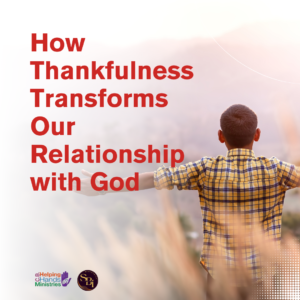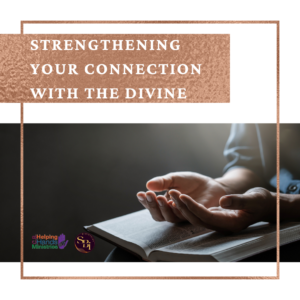Understanding His Grace and Forgiveness

In our spiritual journey, understanding and embracing God’s grace and forgiveness are essential aspects that deepen our faith and strengthen our relationship with the divine. His grace is the unmerited favor bestowed upon us, demonstrating God’s boundless love and compassion. It is through His grace that we receive forgiveness for our shortcomings and find redemption.
Reflect on the immense gift of God’s grace in your life. Understand that His grace is not earned or deserved but freely given to all who seek it. Embrace the knowledge that despite our imperfections, God’s grace is always available, offering us the opportunity for healing, growth, and transformation.
Forgiveness is a cornerstone of our faith journey. Just as God extends His forgiveness to us, we are called to forgive others. Embracing forgiveness allows us to release resentment and find peace within ourselves. It is through forgiveness that we can experience healing, restoration, and reconciliation in our relationships.
Through prayer, meditation, and reflection on His teachings, seek guidance from God to deepen your understanding of His grace and forgiveness. Allow His wisdom to illuminate your heart and mind, opening yourself to His divine presence and guidance.
As you grow in your understanding of God’s grace and forgiveness, extend the same compassion and forgiveness to others. Practice empathy, kindness, and understanding, mirroring the example set by our faith teachings. In doing so, you not only deepen your faith but also contribute to a more loving and compassionate world.
Remember, understanding His grace and forgiveness is a lifelong journey of growth and learning. It is through this journey that we can experience the transformative power of His love and find solace in His divine presence. Let His grace and forgiveness guide you as you continue to deepen your faith and walk in His light.
Apostle Shelia
SBI Ministries
C.B. Helping Hands Ministries
Your generous donations play a vital role in spreading the message of God’s healing power and grace. By supporting the creation of valuable content that uplifts and inspires, you contribute to the journey of individuals seeking solace and hope through the teachings of the Bible. Together, we can make a difference in the lives of those in need of spiritual healing and restoration. Your support is greatly appreciated as we continue to share the transformative power of God’s grace with the world.





 For many of us, there comes a moment when we feel called to something greater—a purpose that transcends our ordinary existence. In those pivotal instances, we often seek encouragement and direction from scripture, and one verse that resonates deeply is Joshua 1:9: “Have I not commanded you? Be strong and courageous. Do not be afraid; do not be discouraged, for the LORD your God will be with you wherever you go.”
For many of us, there comes a moment when we feel called to something greater—a purpose that transcends our ordinary existence. In those pivotal instances, we often seek encouragement and direction from scripture, and one verse that resonates deeply is Joshua 1:9: “Have I not commanded you? Be strong and courageous. Do not be afraid; do not be discouraged, for the LORD your God will be with you wherever you go.”

